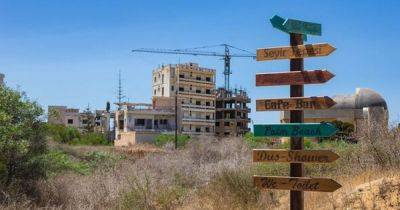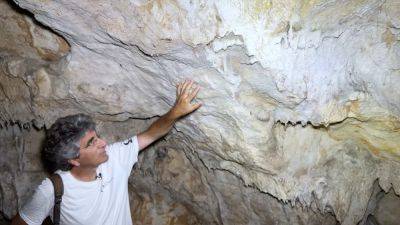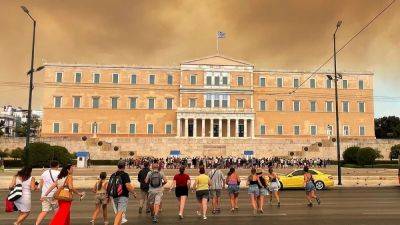Harnessing Hadrian’s heritage: Athens taps into ancient Roman aqueduct to turn down the heat
After experiencing its hottest June on record and another severe heatwave in July, cooling Athens and conserving water has taken on extra urgency, especially given that this part of Europe is one of the fastest-warming places on Earth. One idea already in the pipeline is to create more green spaces in the Greek capital using water from the city’s ancient Roman aqueduct.
Commissioned by Emperor Hadrian and completed around 140 AD, Hadrian’s Aqueduct flows some 23km from Mount Parnitha, north of the capital, directly into the heart of Athens. Most of the aqueduct lies below ground and works by infiltrating the groundwater table.
In the municipality of Chalandri, a pilot project called Cultural HIDRANT is bringing part of the ancient structure back to life.
‘’The Hadrian aqueduct hasn't got an obvious spring to carry the water to somewhere else,” said Christos Giovanopoulos, the Project Manager of Cultural HIDRANT. “It soaks the water from the ground along its route and this is important because the more you use the water, then the water returns. You enrich the water resource that we use,’’ he added.
When complete, residents in Chalandri will be able to tap into the non-potable water system to water their gardens or clean their property, either by connecting to pipelines running next to the aqueduct or by using municipal water trucks.
“The Hadrian aqueduct, because it's still functioning, still carries water that is now wasted into the sea. When the new non-potable water pipelines start working we're going to save 80,000 cubic metres per year,’’ Christos explained.
Athens is one of Europe’s hottest and most densely built cities. In summer that leads to a marked heat island effect and it’s hoped the extra water will create and








